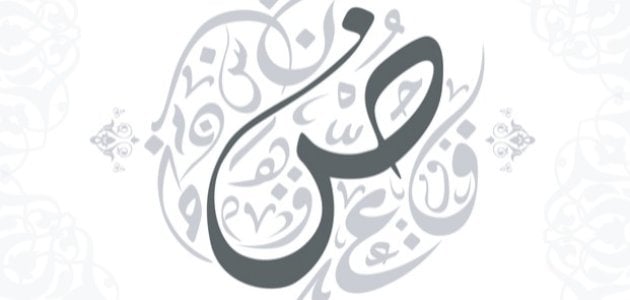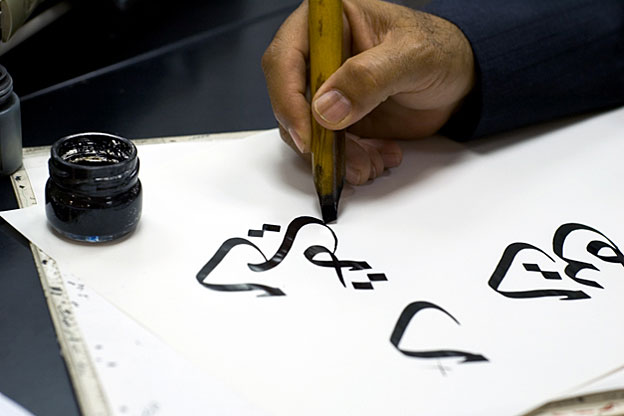Learning the Arabic language plays a vital role in the lives of Muslims. It goes beyond the ability to communicate and extends into the realms of spirituality, culture, and tradition. By understanding Arabic, Muslims can establish a deeper connection with their faith and engage more meaningfully in their religious practices.
The Importance of Learning Arabic Language in Islam

Islam is a religion that encompasses a rich heritage and a comprehensive set of beliefs and practices. At the core of this religion lies the Arabic language, which holds immense significance in the lives of Muslims worldwide. Learning Arabic is not only an act of devotion but also a means to gain a deeper understanding of Islam’s teachings and strengthen one’s connection with Allah.
The Significance of the Arabic Language in Islamic History
The Language of the Quran
Arabic is the language in which the Quran, the Holy Quran of Islam, was revealed to the Prophet Muhammad (peace be upon him). It is the divine language chosen by Allah to deliver His message to humanity. By learning Arabic, Muslims can directly access the original words of the Quran and comprehend its profound wisdom and guidance.
Understanding Religious Texts
Apart from the Quran, many important Islamic texts, such as the Hadith collections and scholarly works, are primarily available in Arabic. Learning the language allows Muslims to access and understand these valuable resources, which contain insights into the Prophet’s teachings and the Islamic legal system. It enables individuals to navigate religious texts independently and acquire a comprehensive knowledge of Islam.
Preserving the Authenticity of Islamic Teachings
Arabic acts as a safeguard against misinterpretation or distortion of Islamic teachings. By understanding the language, Muslims can refer to original sources and verify the authenticity of religious information. This knowledge empowers individuals to distinguish between accurate Islamic teachings and cultural practices, thus preserving the purity and integrity of the faith.
Spiritual Connection and Worship

Salah (Prayer)
Prayer holds a central position in the life of a Muslim, and performing it in Arabic enhances the spiritual experience. Understanding the Arabic words and phrases used in prayer enables believers to connect more deeply with their Creator. It allows them to comprehend the meanings behind the recitations, supplications, and praises, fostering a profound sense of devotion and tranquility.
Recitation of the Quran
Reciting the Quran in Arabic is a profoundly cherished act for Muslims. Learning the language equips individuals with the ability to recite the Quran with proper pronunciation, intonation, and understanding. This facilitates a direct and intimate relationship with the sacred text, enabling one to internalize its message and experience the spiritual benefits it offers.
Supplications (Dua)
Muslims often make supplications to seek guidance, blessings, or assistance from Allah. Learning Arabic enables believers to express their innermost desires and concerns in the language of the Prophet Muhammad (pbuh). Understanding the supplications in Arabic adds a profound layer of connection and sincerity to their prayers.
Understanding the Core Tenets of Islam
Tawheed (Monotheism)
The concept of Tawheed, the belief in the oneness of Allah, is fundamental in Islam. Learning Arabic allows Muslims to grasp the nuances and depth of this concept as expressed in the Quran. It helps in understanding the various names and attributes of Allah and deepens one’s understanding of monotheism.
Prophethood
Islam recognizes numerous prophets and their stories are narrated in the Quran. By studying Arabic, Muslims can gain a more profound comprehension of the life and mission of these prophets, including the final Prophet Muhammad (pbuh). This knowledge enriches their faith and enables them to appreciate the wisdom and lessons contained in these accounts.
Hereafter
The Quran contains detailed descriptions of the afterlife and the events of the Day of Judgment. Learning Arabic allows Muslims to explore these descriptions in their original language, comprehending the vivid imagery and the promises and warnings contained within. It helps believers develop a greater consciousness of the Hereafter and strive for righteousness.
Enhancing Cultural Understanding

Connecting with the Arab World
Arabic is not only the language of Islam but also the native language of millions of people in the Arab world. Learning Arabic opens doors to understanding their culture, traditions, and history. It facilitates communication and fosters a sense of appreciation and respect for diverse communities within the Muslim ummah.
Access to Original Islamic Literature
Many influential Islamic literary works were penned in Arabic. By acquiring proficiency in the language, individuals gain direct access to these classical texts, including works on theology, philosophy, jurisprudence, and spirituality. This exposure broadens their intellectual horizons and enables a deeper engagement with Islamic scholarship.
Participation in Islamic Events
Arabic is often used in international Islamic conferences, seminars, and gatherings. By learning Arabic easily, individuals can actively participate in such events, benefiting from the wisdom and insights shared by renowned scholars and leaders. It fosters a sense of belonging and allows Muslims to contribute meaningfully to the global Islamic discourse.
Promoting Unity and Brotherhood
Common Language of Muslims
Arabic serves as a unifying force among Muslims worldwide. It provides a common language that transcends cultural, geographical, and ethnic boundaries. When Muslims from diverse backgrounds learn Arabic, they can communicate and understand one another better, fostering a stronger sense of unity and brotherhood within the ummah.
Ease of Communication
Arabic is spoken by millions of Muslims as their first language. By Reading Arabic, individuals can engage in conversations, establish connections, and build relationships with native Arabic speakers. This facilitates meaningful exchanges, and cultural understanding, and strengthens bonds among Muslims.
Building Bridges and Fostering Relationships
Proficiency in Arabic empowers individuals to engage with Arab communities, whether locally or globally. It allows for intercultural dialogue, collaboration, and cooperation, promoting mutual understanding, peace, and harmony. By bridging linguistic and cultural gaps, learning Arabic paves the way for fostering long-lasting relationships among Muslims worldwide.
FAQs
Is it mandatory for Muslims to learn Arabic?
No, it is not obligatory for Muslims to learn Arabic. However, acquiring knowledge of Arabic greatly enhances their understanding of Islam and offers numerous spiritual and cultural benefits.
Can I learn Arabic without a formal course?
Yes, there are various resources available, including online courses, textbooks, and language learning apps, that can help individuals learn Arabic independently.
How long does it take to become proficient in Arabic?
The time required to become proficient in Arabic varies depending on factors such as dedication, practice, and previous language learning experience. It can take several months to a few years to attain fluency.
Can I understand the Quran without learning Arabic?
Translations of the Quran are available in different languages, allowing individuals to understand its message. However, learning Arabic grants a deeper understanding of the Quran's intricate meanings and linguistic beauty.
Can learning Arabic benefit me professionally?
Yes, proficiency in Arabic can open doors to various career opportunities, especially in fields such as translation, interpretation, diplomacy, journalism, and academia.
Conclusion
Learning Arabic is of paramount importance for Muslims seeking to deepen their understanding of Islam, establish a stronger spiritual connection, and foster unity within the ummah. By immersing themselves in the language, individuals can explore the depths of Islamic teachings, access original texts, and engage with the broader Muslim community. Arabic serves as a gateway to knowledge, culture, and spiritual growth, empowering Muslims to embrace the wisdom of their faith and contribute meaningfully to the global Islamic discourse.


